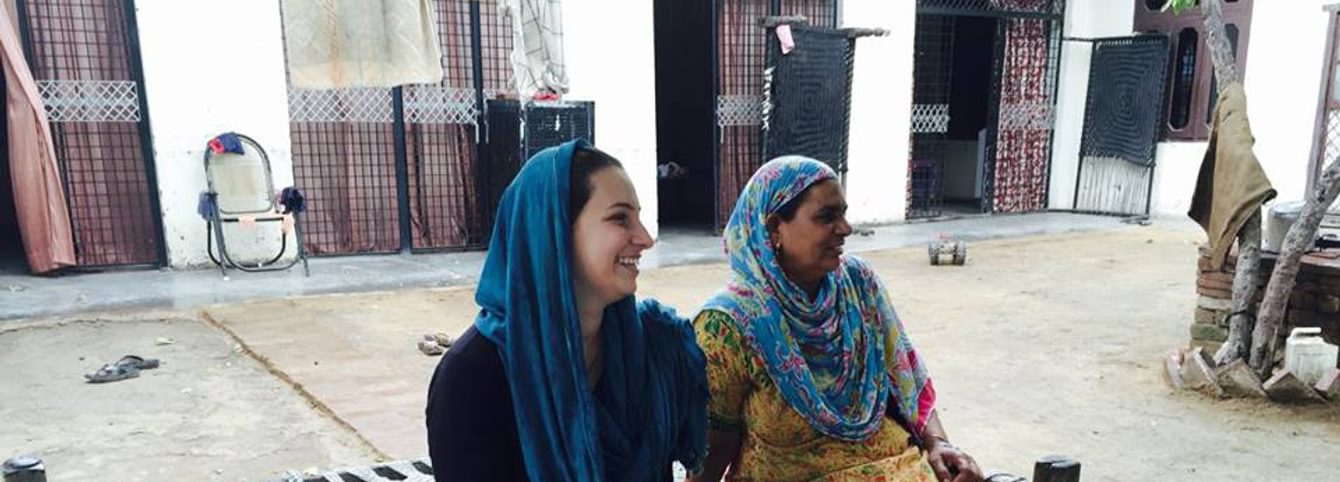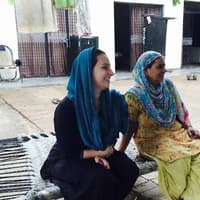Morgan Burdick
Morgan Burdick is an alumna of the 2014 Urdu and 2016 Punjabi CLS Programs in Lucknow and Chandigarh, India, respectively. She is currently a student at Seattle University and works as a social worker with immigrant survivors of human trafficking, sexual assault, and domestic violence. After graduating this spring, she will begin a master’s degree in social work at the University of Washington. When Morgan is not studying or working, she enjoys hiking with her dog, drinking tea, and reading lots of books.
Why Punjabi?
I chose to study Punjabi because I had been working with immigrant and refugee communities and noticed how many Punjabi Sikh communities in my area face violence because they are perceived to be Muslim. I wanted to speak Punjabi specifically to better work with Sikh communities facing such violence. Since I returned to the US, this work has become even more vital.
On the Hunt for a Shrine
One of my favorite CLS experiences was searching for the Sufi shrine of a friend of a friend’s family. Before the Partition, this family was the caretaker of the shrine, but then had to flee Indian Punjab to Pakistani Punjab. We only knew information about the Shrine from before 1947 and an approximate location. We had a great time asking around for the location, making plenty of friends along the way. Eventually we found the shrine and learned that a Sikh family, who were also partition refugees from what is now Pakistan, was taking care of the shrine.
Connecting with Hosts
I loved spending the summer in Punjab! I’ve lived in several regions of South Asia but the excellent food and kindness I experienced in Punjab especially stand out. My host mom and I would chat every morning while making parathas and she’d joke about finding me a “changa punjabi munda” (nice Punjabi boy) so I could live with her forever.
Words of Wisdom
I’d encourage anyone interested in language learning to think about how learning your target language is relevant both in a place you might travel to study and in your local communities. Often, people think that the only way to be immersed in language learning is by traveling to a place where it’s spoken by most people, but they are also highly relevant to communities in the United States.



